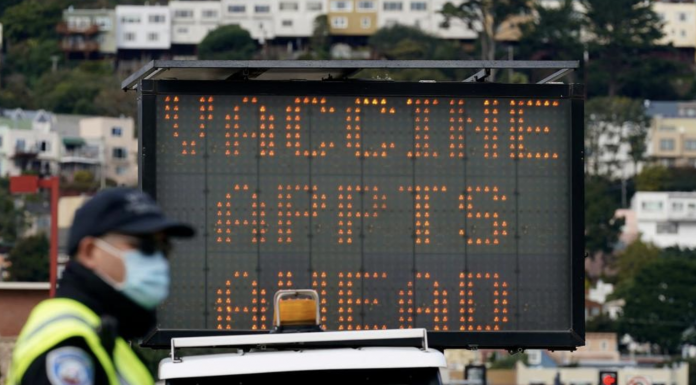FOX NEWS – The Food and Drug Administration (FDA) is reportedly expected to administer a new warning on the Johnson & Johnson COVID-19 vaccine and a possible link to Guillain-Barré, a rare autoimmune nerve disorder.
The Washington Post, citing four individuals familiar with the matter, said the warning is expected after about 100 cases of Guillain-Barré occurred against a backdrop of nearly 12.8 million Johnson & Johnson vaccine recipients.
FDA declined to comment when prompted by Fox News. Johnson & Johnson did not immediately respond to Fox News’ requests for comment.
A Centers for Disease Control and Prevention (CDC) spokesperson confirmed to Fox News that the CDC and FDA are monitoring reports of Guillain-Barré Syndrome (GBS) after receiving Johnson & Johnson’s Janssen COVID-19 Vaccine.
Kristen Nordlund of CDC Public Affairs wrote to Fox News in an email:
“Reports of GBS after receipt of the J&J/Janssen COVID-19 Vaccine in the Vaccine Adverse Event Reporting System (VAERS) are rare, but do likely indicate a small possible risk of this side effect following this vaccine.
“These cases have largely been reported about two weeks after vaccination and mostly in males, many aged 50 years and older” … Click here to read more.
Guillain-Barre syndrome
MAYO CLINIC – Guillain-Barre (gee-YAH-buh-RAY) syndrome is a rare disorder in which your body’s immune system attacks your nerves. Weakness and tingling in your extremities are usually the first symptoms.
These sensations can quickly spread, eventually paralyzing your whole body. In its most severe form Guillain-Barre syndrome is a medical emergency. Most people with the condition must be hospitalized to receive treatment.
The exact cause of Guillain-Barre syndrome is unknown. But two-thirds of patients report symptoms of an infection in the six weeks preceding. These include respiratory or a gastrointestinal infection or Zika virus.
There’s no known cure for Guillain-Barre syndrome, but several treatments can ease symptoms and reduce the duration of the illness. Although most people recover from Guillain-Barre syndrome, the mortality rate is 4% to 7%. Between 60-80% of people are able to walk at six months. Patients may experience lingering effects from it, such as weakness, numbness or fatigue.
Symptoms
Guillain-Barre syndrome often begins with tingling and weakness starting in your feet and legs and spreading to your upper body and arms. In about 10% of people with the disorder, symptoms begin in the arms or face. As Guillain-Barre syndrome progresses, muscle weakness can evolve into paralysis.
Signs and symptoms of Guillain-Barre syndrome may include:
- Prickling, pins and needles sensations in your fingers, toes, ankles or wrists
- Weakness in your legs that spreads to your upper body
- Unsteady walking or inability to walk or climb stairs
- Difficulty with facial movements, including speaking, chewing or swallowing
- Double vision or inability to move eyes
- Severe pain that may feel achy, shooting or cramplike and may be worse at night
- Difficulty with bladder control or bowel function
- Rapid heart rate
- Low or high blood pressure
- Difficulty breathing
People with Guillain-Barre syndrome usually experience their most significant weakness within two weeks after symptoms begin. Read more.



